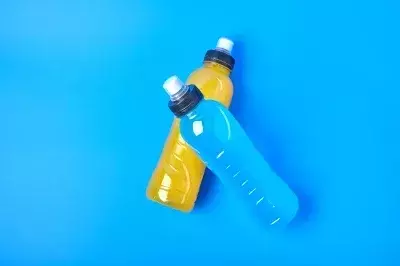
Unlock the Truth: Do You Really Need Electrolyte Drinks to Stay Hydrated?
The Ubiquity of Electrolyte Products: A Modern Hydration Trend
Today's beverage market is saturated with brightly colored sports drinks and convenient electrolyte powder sachets, championed by brands like Gatorade and Powerade. These products often highlight their electrolyte content, such as salt and potassium, suggesting they are vital for replacing what the body expels through perspiration. The popularity of these items has skyrocketed, evolving from niche athletic aids to mainstream wellness products, with billions of dollars spent by consumers annually. This widespread adoption is further amplified by social media influencers who often promote these products with bold assertions about their health benefits.
Decoding Electrolytes: Understanding Their Role in the Body
Electrolytes are essential minerals, including sodium, potassium, and magnesium, that are crucial for various bodily functions, such as maintaining cellular equilibrium and facilitating communication between cells. These vital micronutrients are indeed lost through sweat, which is primarily composed of water and salt, along with trace amounts of other minerals and compounds. However, medical professionals and sports scientists caution against the prevalent marketing narratives, emphasizing that for the majority of individuals, consuming ample water and a nutritious diet rich in fruits and vegetables provides sufficient electrolytes. They underline that supplemental electrolyte intake is generally unnecessary unless an individual experiences significant and prolonged heavy sweating or rapid fluid loss due to illness.
The Body's Ingenious Electrolyte Regulation System
Our bodies possess sophisticated mechanisms to regulate electrolyte levels effectively. For instance, the kidneys play a pivotal role in managing sodium balance. When the body loses a substantial amount of salt, specific hormones are activated to ensure sodium is reabsorbed into the bloodstream. Conversely, if there's an excess of sodium, these hormonal pathways adjust to facilitate its excretion through urine, preventing accumulation. Similarly, calcium and magnesium, stored within bones, can be released and converted into functional electrolytes as needed. This inherent regulatory capacity means that a typical balanced diet usually supplies all the necessary electrolytes, often even more than required, particularly concerning sodium in Western diets.
When Electrolyte Supplements Offer a Genuine Advantage
While daily electrolyte supplementation is generally not required for the average person, there are specific scenarios where these products can be beneficial. Individuals engaging in intense physical activity that leads to profuse and sustained sweating for over an hour, such as elite athletes or those working extensively in hot environments, may find sports drinks useful for quickly replenishing lost fluids, electrolytes, and carbohydrates. Additionally, in cases of severe medical dehydration, oral rehydration solutions are critical. These solutions are formulated to correct acute electrolyte imbalances and have been instrumental in saving countless lives globally, particularly in combating diarrheal diseases. For most, however, simple water and a diverse diet remain the most effective and natural means of staying hydrated and maintaining electrolyte balance.
Concluding Thoughts: Simple Hydration for the Majority
Ultimately, if you maintain a reasonably balanced diet and do not partake in extreme athletic endeavors or prolonged strenuous activities under hot conditions, your body is likely receiving all the necessary electrolytes from the foods you consume. Experts generally concur that for the average individual, electrolyte-enhanced drinks offer no significant physiological advantage in terms of enhancing exercise performance, improving recovery, or boosting overall well-being. While these beverages are not harmful in moderation and might encourage increased fluid intake due to their palatability, they are largely dispensable for daily hydration needs. Opting for plain water remains the most straightforward and effective method for adequate hydration.
